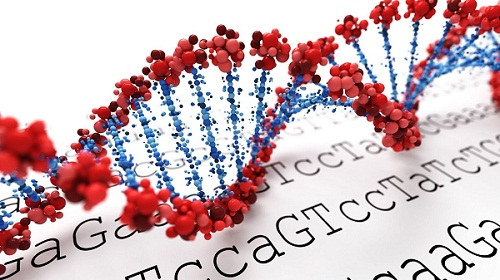The increase in awareness in regards with the benefits of using gene therapy as compared to conventional therapy for the treatment of various diseases and government support to promote gene therapy related research are the major driving factors that are projected to boost the market growth.
According to a new report published by Allied Market Research, titled, Gene Therapy Market by Vector Type, Gene Type, Application, and Geography: Global Opportunity Analysis and Industry Forecast, 2017-2023,“ the global gene therapy market accounted for $584 million in 2016, and is estimated to reach $4,402 million by 2023, registering a CAGR of 33.3% from 2017 to 2023. North America is the highest contributor in the gene therapy market in 2016; however, Asia-Pacific is expected to witness the highest growth rate during the forecast period.
Request sample PDF brochure at: https://www.alliedmarketresearch.com/request-sample/2841

Gene therapies are promising therapies applicable to a broad range of diseases; their aim is to radically treat the causes of the diseases instead of only relieving the symptoms. They may be effective on a wide range of previously untreated diseases, such as hematological, ocular, neurodegenerative diseases, and several cancers. For example, adeno-associated AAV2 vectors carrying the therapeutic gene (RPE65) intra-retinal injection resulted in improved vision for people with Lebers Congenital Amaurosis. Gene therapies can be applied either in combination with cell products and through an ex vivo treatment mode (e.g. Strimvelis), or directly administered in vitro (e.g. Glybera). Several vectors present clinically relevant options, including adenovirus (AV), adeno-associated virus (AAV), and lentivirus.
The increase in funding for R&D activities pertaining to gene therapy and increase in awareness regarding gene therapy are the major factors that drive the market growth. In addition, increase in government support, ethical acceptance of gene therapy for cancer treatment, and rise in prevalence of cancer can fuel the growth of the gene therapy market. However, high cost associated with the treatment and unwanted immune responses are expected to hamper the market growth.
Among the vector type, viral vectors contribute to the largest share in 2016, and estimated to retain the same trend during the forecast period. Non-viral vector is anticipated to be a lucrative market due to the technological advancement of these vectors with positive results for these therapies during the preclinical and clinical trials for the treatment of various diseases.
Among the gene type, antigen dominates the overall market accounting for two-ninths of the total share in 2016. Among the applications, oncological disorders is the largest contributor towards the market growth.
In 2016, North America accounted for maximum contribution to the total revenue generated, owing to the high prevalence rate of cancer, presence of high disposable income, and high funding for R&D activities associated with gene therapy. However, Asia-Pacific is expected to witness the highest CAGR during the analysis period, attributable to rise in incidence rate of cancer, increase in government initiative to improve healthcare infrastructure, and rise in healthcare expenditure.
Do Purchase inquiry at: https://www.alliedmarketresearch.com/purchase-enquiry/2841
Key Findings of the Gene Therapy Market:
- Non-viral vectors is projected to grow at the highest rate during the analysis period.
- Oncological disorders segment generated the highest revenue, and is expected to continue its dominance in future.
- North America dominated global gene therapy market in 2016, and is projected to continue its dominance in future.
- China is expected to grow highest in the Asia-Pacific region during the forecast period.
- Antigen was the largest contributor among the gene type segments.
The key companies profiled in the report include Novartis, Kite Pharma, Inc., GlaxoSmithKline PLC, Spark Therapeutics Inc., Bluebird bio Inc., Genethon, Transgene SA, Applied Genetic Technologies Corporation, Oxford BioMedica, and NewLink Genetics Corp.
Other prominent players in the value chain include Amgen, Epeius Biotechnologies, Abeona Therapeutics, Sanofi, UniQure, Juno Therapeutics, Adaptimmune, Celgene, and Advantagene.

